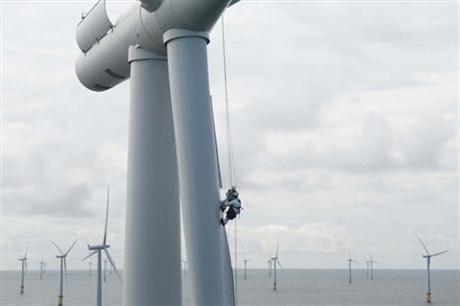The RAE report look at the future role offshore cost will play in energy production and the difficulties it will face. It also outlines several key technological difficulties that will need to be overcome and compares the cost of onshore and offshore wind to other sources of power.
As well as the less developed technology, the RAE also highlights the difficulties in integrating offshore projects because of transmission concerns and the fact that the seas around the UK are extremely busy, meaning close cooperation with existing industries and ecosystems is required.
These difficulties, unsurprisingly, add to the cost of offshore wind, making the industry far more expensive than its onshore equivalent, with the extra cost being added to the consumers.
The paper said onshore wind, while still more expensive than coal or gas, is still one of the cheapest renewable energy sources.
However, the RAE does concede costs of offshore will decrease with the evolution and improvement of technology. These savings will be offset by the industry having to move wind farms in to more hostile environments, according to the report.
It also says the wind energy sector will play a greater role in the UK as the government attempts to reach its 2020 energy targets set by the European Union, but added the importance of planning ahead: "The future system must be designed carefully and well in advance. Wind energy will only be one of the pieces but it can play a crucial role in delivering the required system.
"These challenges require a fundamental shift in society's attitude to and use of energy and will only be met with the support of both domestic and business customers. High levels of wind energy will result in large numbers of very large turbines. Whether these are onshore or at sea, they will inevitably have an impact on local communities and stakeholders.
"Government and industry must both play their respective parts in engaging honestly with these stakeholders, setting out clearly both the impacts and the benefits."
John Trewby, chair of the academy's working group on wind energy, said: "[Wind energy] elicits strong feelings and the debate has become very polarised. We felt that the academy could make a useful contribution by setting out the engineering characteristics of the technology and exploring the implications of increasing the amount of wind energy on the electricity system.
"As I have learned in the course of this study, the issues raised by wind energy are many, novel and complex. These matters deserve debate. I hope that readers will find this report on wind energy provides a helpful and balanced assessment of the challenges that engineers are tackling and will need to tackle as the UK seeks to create an energy system that is fit for the future."

.png)


.png)










